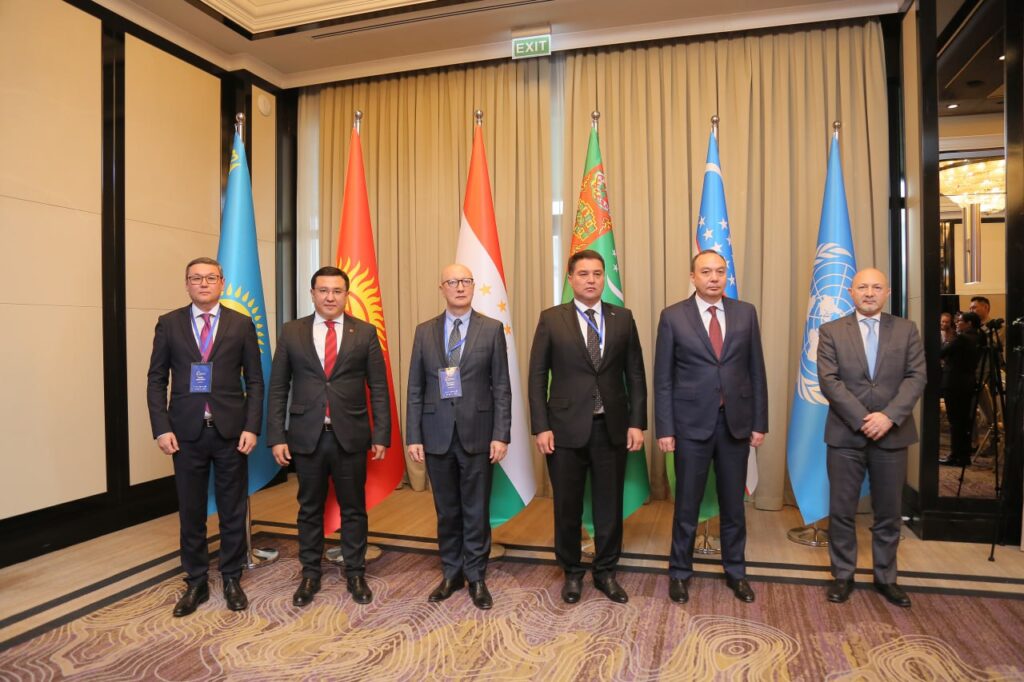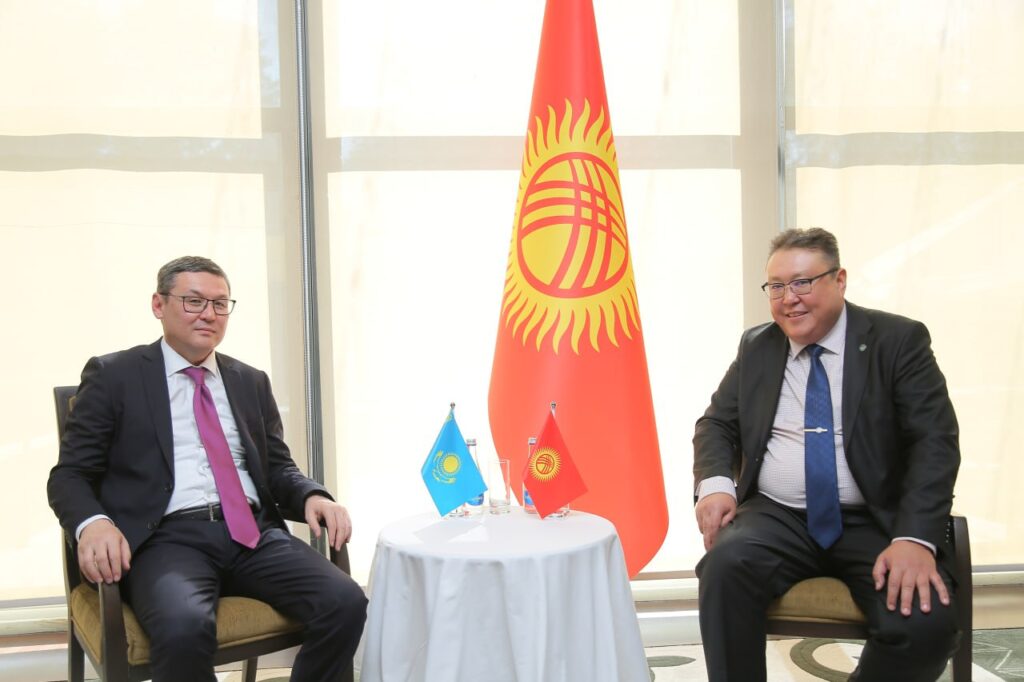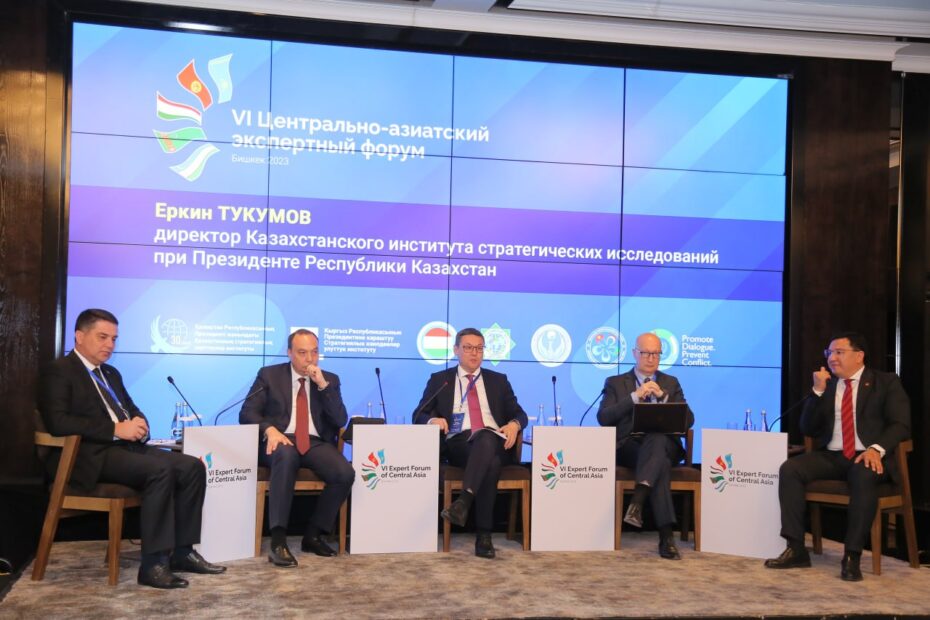Director of Kazakhstan Institute for Strategic Studies under the President of the Republic of Kazakhstan Yerkin Tukumov participated in the “Central Asia: The Aspects of Cooperation” VI Expert Forum of Central Asia in Bishkek.
On the margins of the forum, he met with Deputy Minister of Foreign Affairs of the Kyrgyz Republic Avazbek Atakhanov, as well as with Head of the Department of Political and Economic Research of the Presidential Administration of Kyrgyzstan Almaz Isanov. Issues of cooperation between Kazakhstan and Kyrgyzstan were discussed, as well as the need to increase the role of “think tanks” in strengthening ties between our countries and the whole of Central Asia.
During his speech from the rostrum of the forum, Yerkin Tukumov emphasized the urgency of strengthening the work of the expert track on such issues as sustainable development, water use, transport interconnectivity, mutual cooperation of think tanks and the situation in Afghanistan.
Speaking about promising forms and models of interaction between Central Asian countries, Yerkin Tukumov noted the importance of joint work in the regional format: “Central Asia is not united against someone or something. We cooperate for the sake of common interests and a common future. The region’s policy is based on mutual respect for national interests and the principle of equal voice of each Central Asian state. At the same time, the next important step should be the realization that “the problems of the region should be solved in the region itself”.
According to the speaker, Central Asia is experiencing increased interest of the world community, which is confirmed by the volume of foreign investment: “The level of foreign direct investment in relation to the GDP of Central Asia is ahead of the world average, amounting to 61% against 47%”. KazISS Director noted that these indicators testify to the growing global popularity of the C5+1 format – the Central Asian Five and external partners.
Also, Yerkin Tukumov emphasized the need for joint work to develop a Roadmap on water use in the region with the participation of Afghanistan. In his opinion, this document should include standardization of metering, introduction of water saving technologies and establishment of common rules of water use, which helps to prevent future water conflicts. It was proposed to expand cooperation with Afghanistan, including assistance in economic restructuring and transport interconnectivity: “Afghanistan’s sustainable socio-economic development is inextricably linked to Central Asia’s transport interconnectivity,” Tukumov said.
In his speech, director of KazISS also focused on the topic of transportation connectivity. According to him, transport interconnectivity will promote trade and increase the number of jobs: “Paved roads in Central Asia have already increased by 24.5 thousand kilometers, which has increased trade flows between the countries”.
We would like to add that the forum “Central Asia: The Aspects of Cooperation” is designed to unite the expert community of the region. The meeting in Bishkek was organized by the National Institute for Strategic Studies under the President of the Kyrgyz Republic and the UN Regional Centre for Preventive Diplomacy for Central Asia. This is the sixth meeting in the CAEF format, and the outcome of the event will be the development of practical proposals and recommendations for the heads of state of the region.





